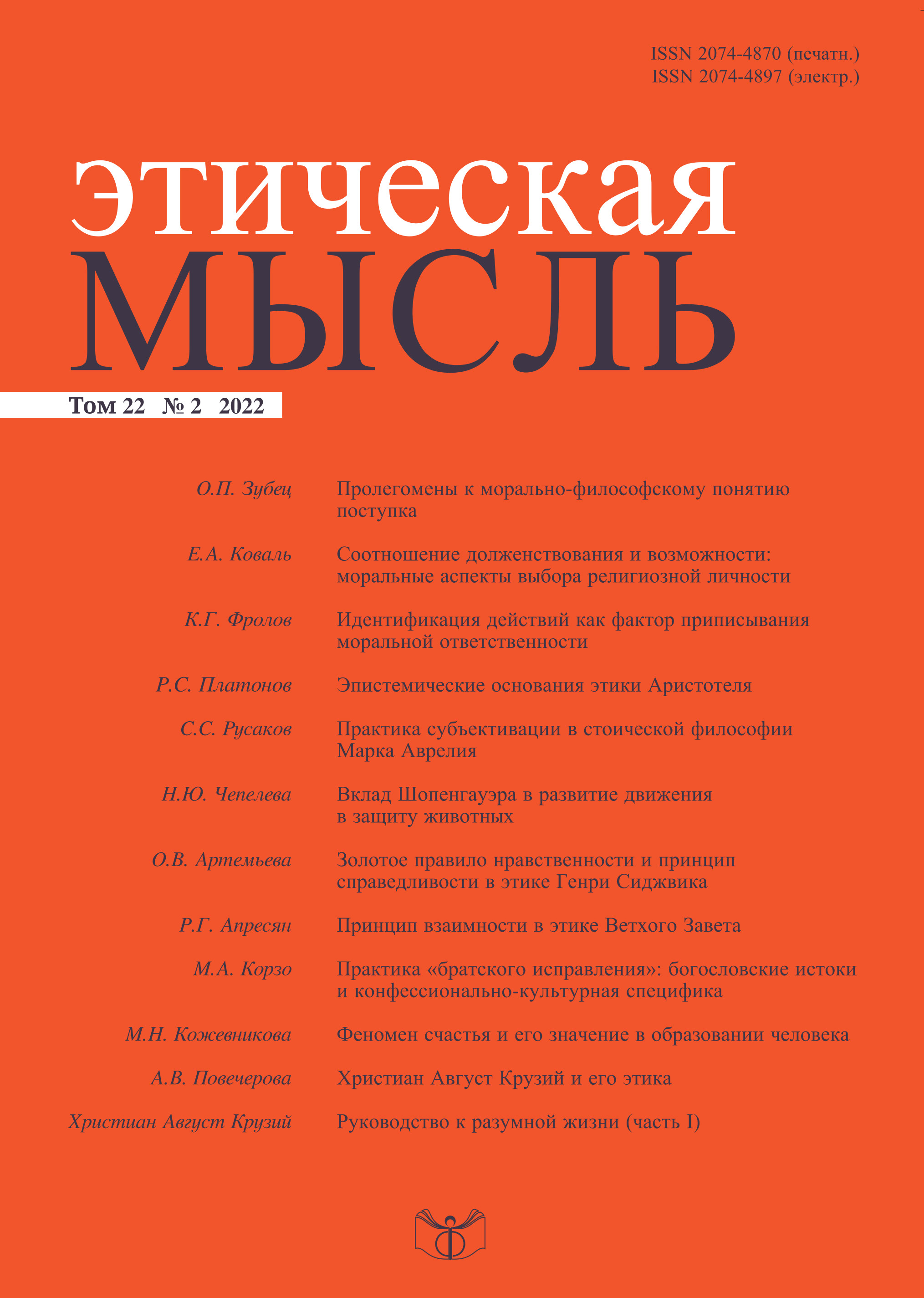Пролегомены к морально-философскому понятию поступка
DOI:
https://doi.org/10.21146/2074-4870-2022-22-2-5-20Ключевые слова:
поступок, моральная философия, первая философия, бытие, начало, субъект, единственность, асимметрия, имманентность цели, Аристотель, Бахтин, АрендтАннотация
В статье делается попытка помыслить возможный понятийный ряд моральной философии, вытекающий из решения выстроить ее на основе понятия поступка, и определить, от каких идей и ходов мысли необходимо в таком случае отказаться. Речь идет о специфически философской природе этого понятия, выступающего основой первой философии: его содержание раскрывается через «комок» понятийных тождеств: поступок – бытие – поступающий (субъект, начало) – решение – недифференцированность – вневременность – самодостаточность – асимметрия – центральность – единственность – ответственность. Этот «ряд» и полон, и открыт. Выявляя специфику моральной философии поступка, он определяет и те идеи, от которых она должна отказаться, приняв вызов Аушвица со всей серьезностью, как вызов моральному мышлению. Речь идет об отказе от разного рода дифференциаций в силу единства, единственности и полноты поступка (в том числе от содержательного разведения поступка, поступающего, и решения), от идеи множественности (поступка, субъекта); отказе от рядоположенности морали ценностно-регулятивным формам: праву, науке, искусству и др.; об отказе от локализации (ограничения) ответственности, от понятий поведения и личности; от понимания поступка как результата выбора и рационального дискурса, знания; и в итоге от вторичности поступка по отношению к моральным идеям, нормам, заповедям в результате признания приоритета поступка как данности и морали как основанной на начальном поступке не-убийства.









